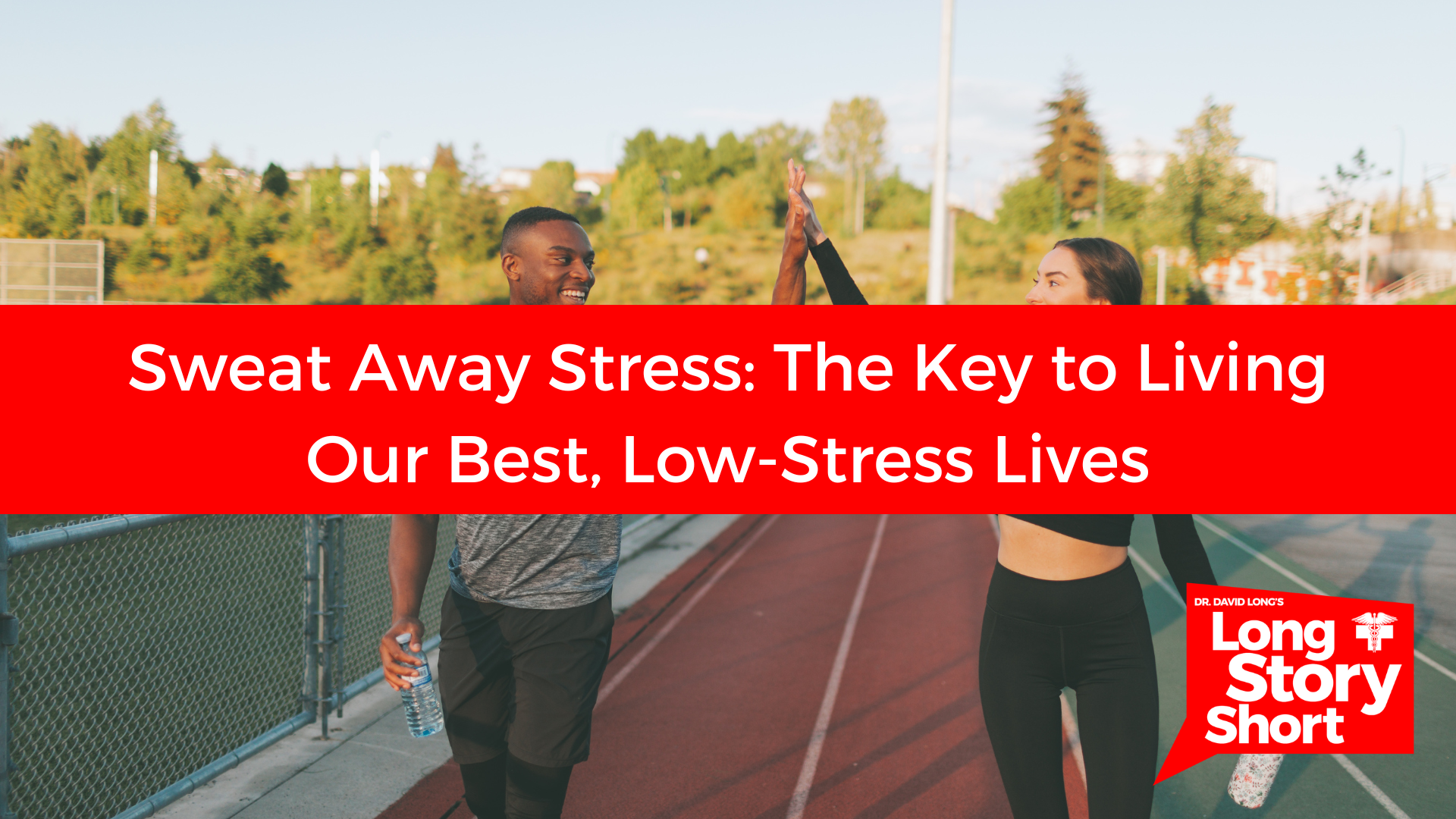Stress, that pesky little thing, can wreak havoc on our bodies and minds. But exercise is the ultimate stress-buster, and here’s why:
The Science Behind Sweating Stress Away
When we’re stressed, our bodies release a hormone called cortisol. While cortisol is essential in small doses, too much of it can lead to a host of problems, including disrupted sleep, digestive issues, and a weakened immune system. Not cool, right?
But, when we get our sweat on, our bodies unleash a flood of endorphins, nature’s happy pills that pack a powerful punch. These endorphins work their magic by lowering cortisol levels, effectively sweating out that pesky stress and anxiety.
Additional Benefits of Exercise for Stress Relief
- Improved Mood: Exercise boosts the production of feel-good neurotransmitters like serotonin and dopamine, leaving you feeling happier and more relaxed.
- Better Sleep: Regular exercise can help regulate your sleep-wake cycle, ensuring you get the restful slumber your body needs to recharge and manage stress effectively.
- Increased Energy: Exercise may seem counterintuitive when you’re feeling drained, but it actually boosts your energy levels by improving blood flow and oxygen delivery to your muscles and brain.
- Boosted Confidence: Regular exercise can improve your self-esteem and body image, giving you the confidence boost you need to tackle life’s challenges head-on.
Kick-Start Your Exercise Journey
Ready to embark on an exercise journey? Here are some tips to begin:
Start Slowly and Build Up Gradually
Start with 10-15 minutes of activity per day, gradually increasing duration and intensity. Set realistic goals with achievable steps. Celebrate small victories to stay motivated.
Make It Enjoyable: Find Your Exercise Groove
Choose activities you genuinely enjoy, like dancing, hiking, cycling, or sports. Invite friends or family for company and accountability. Stay entertained with music, audiobooks, or podcasts.
Build a Routine: Consistency is Key
Schedule exercise at the same time every day, making it a non-negotiable habit. Mix up activities to keep things fresh and prevent boredom.
Warm Up and Cool Down: Injury Prevention 101
Always warm up with light cardio and dynamic stretches. Cool down with light activity and static stretches to aid recovery.
Listen to Your Body: Respect Your Limits
If new to exercise, start slowly and allow rest days. Pay attention to pain or discomfort, and stop if it persists. Consistency and patience are crucial.
Embrace a Low-Stress Life
Stress may be inevitable, but it doesn’t have to control your life. By incorporating regular exercise into your routine, you’re taking a proactive step towards better physical and mental health. So, what are you waiting for? Lace up those sneakers, turn up the music, or grab a friend, and let’s start living our best, low-stress lives!





 and then
and then